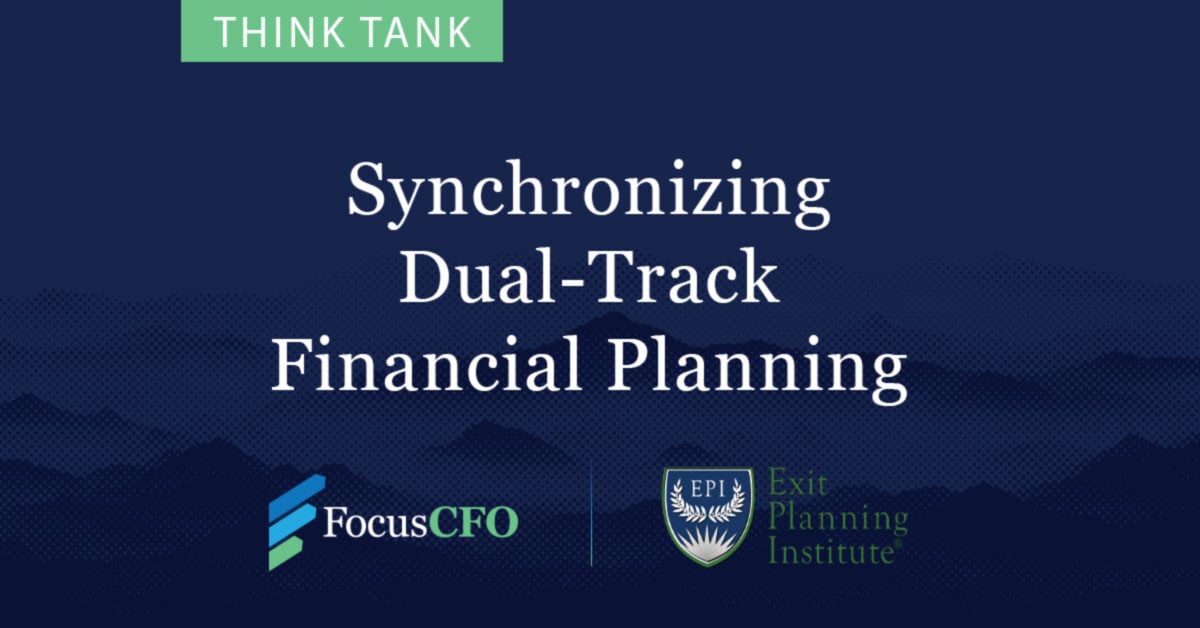As Strategic Partners of the Exit Planning Institute, we were thrilled to share our insights on dual-track financial planning at a recent EPI 'Think Tank' session. You can check out the session, hosted by two of FocusCFO's Exit Planning experts. They emphasize the importance of synchronizing dual-track financial planning for both the owner's personal financial goals and the strategic growth of the business. The discussion explores real-life examples, showcasing the seamless collaboration between financial planners and CFOs, ultimately leading to optimal outcomes for business owners.
"The most special relationship we foster as CFOs is with the owner's financial advisor. It's a collaboration that goes beyond the transactional and extends throughout the entire value acceleration journey."
Key Takeaways
- Strategic Collaboration for Optimal Outcomes:
The session highlighted the critical importance of strategic collaboration between financial planners and CFOs. This collaboration extends beyond mere transactional interactions, focusing on a synchronized effort to navigate the entire value acceleration journey. The examples presented underscored how seamless coordination can lead to optimal outcomes for business owners. - Dual-Track Financial Planning:
A key focal point of the discussion was the concept of dual-track financial planning. This entails a parallel approach to financial planning, addressing both the owner's personal financial goals and the strategic financial planning required for the business. The dual-track framework emerged as a comprehensive strategy to ensure a cohesive and synergistic approach to overall financial health. - Opportunities for Financial Planners:
The session emphasized that collaboration between financial planners and CFOs not only serves the interests of the owner but also presents substantial opportunities for financial planners. From fee-based planning to potential post-exit asset management, financial planners can play a pivotal role in the value creation journey, contributing to the success of both the business and the owner. "Collaboration between financial planners and CFOs is not just about benefiting the owner; it's also an avenue for creating opportunities for financial planners. From fee-based planning to managing post-exit assets, the potential is substantial." - Embedding CFO Expertise for Continuous Support:
A unique aspect highlighted was the value brought by embedded fractional CFOs. These CFOs, whether full-time or fractional, are positioned within the business, providing consistent support week in and week out. This level of commitment ensures ongoing focus on transformative initiatives and reduces friction in the collaborative process with all advisors involved in the owner's financial orbit. - Prioritizing Long-Term Goals:
The session advocated for a proactive approach to identifying and prioritizing long-term goals, both on a personal and business level. The focus on aligning the goals of the owner, guided by a vision that extends three to seven years into the future, emerged as a foundational step in successful dual-track financial planning.
The Think Tank underscored the significance of a collaborative and forward-thinking approach in the intricate realm of dual-track financial planning, offering valuable insights for financial planners, CFOs, and business owners alike.





